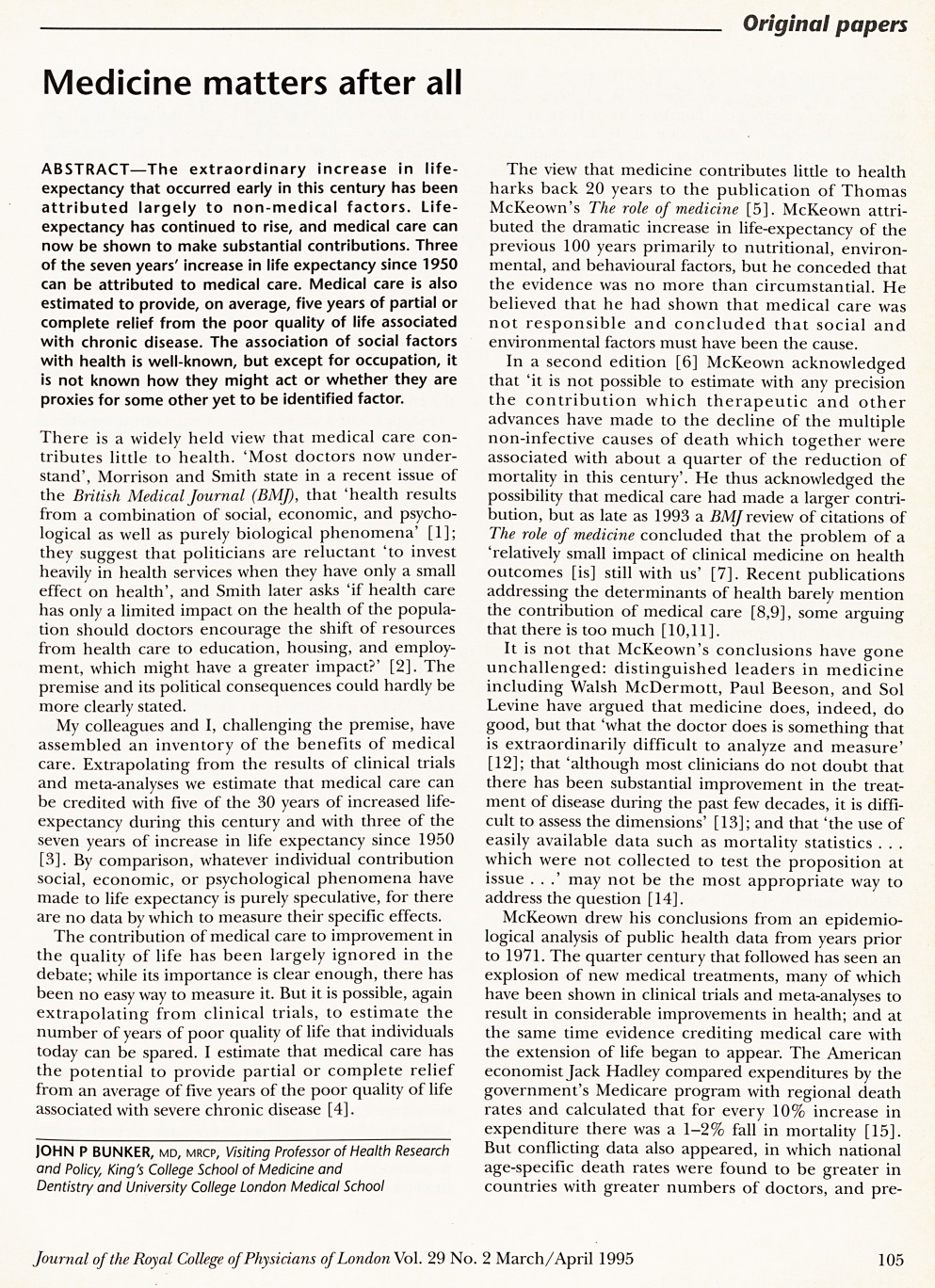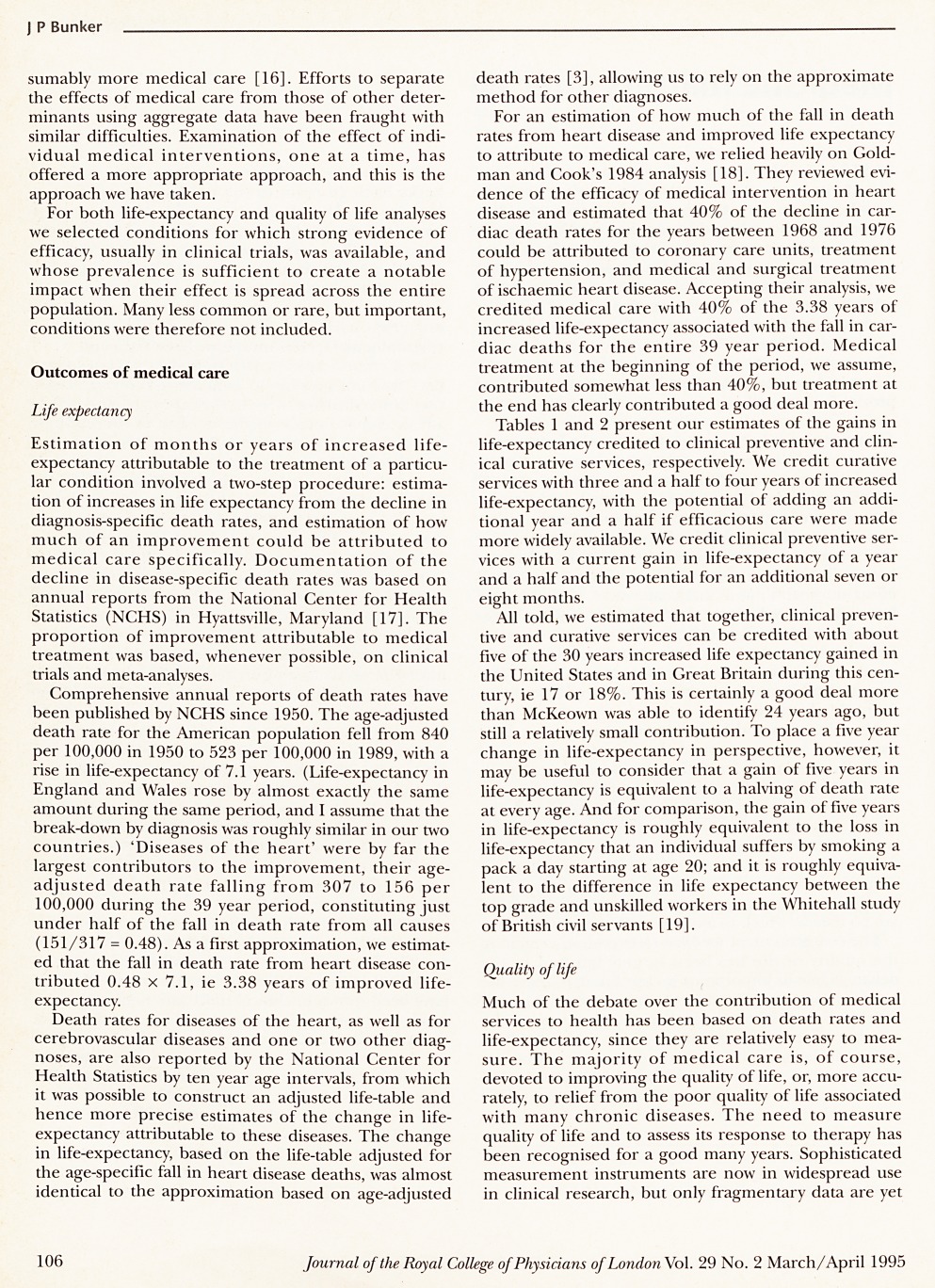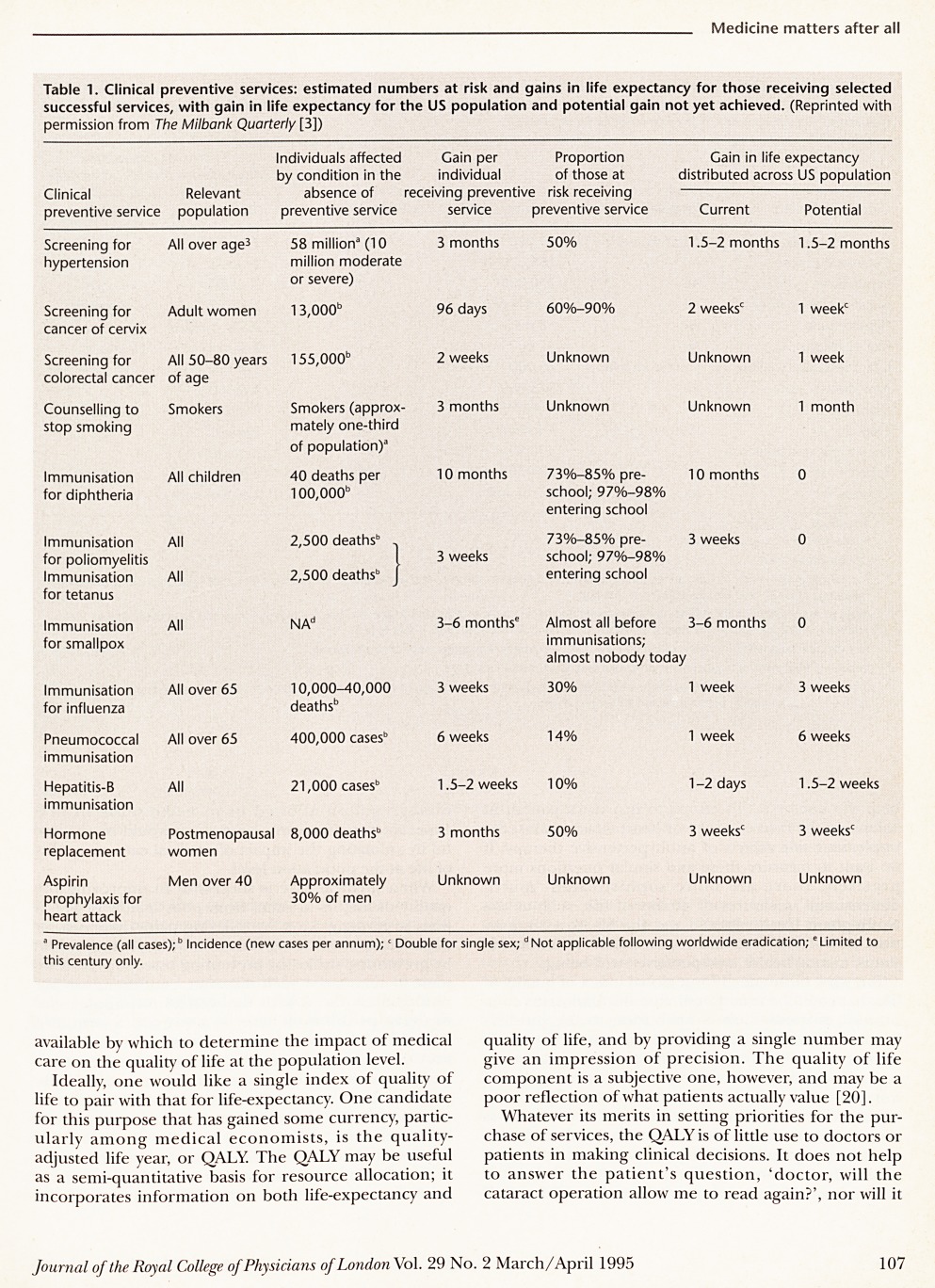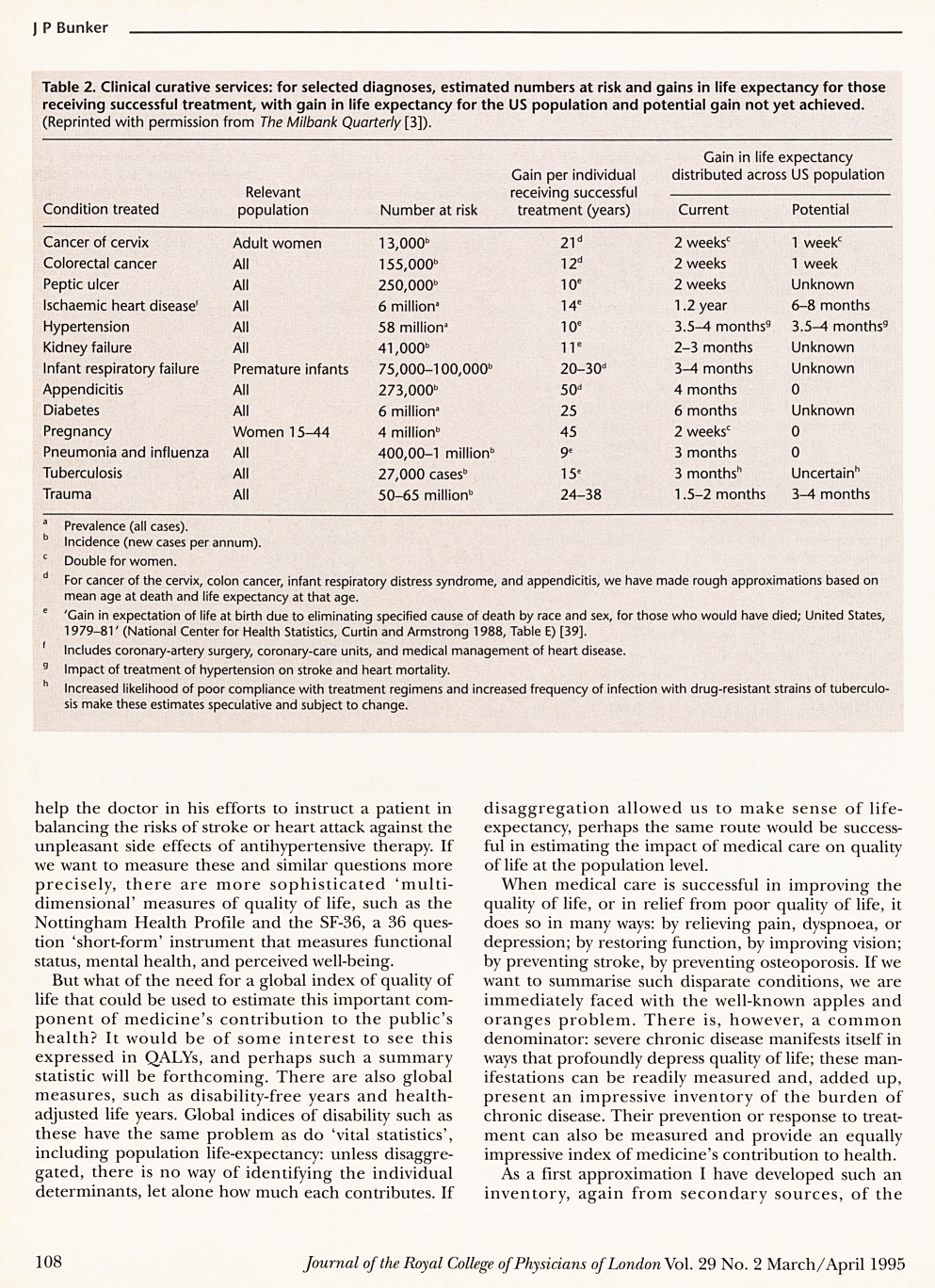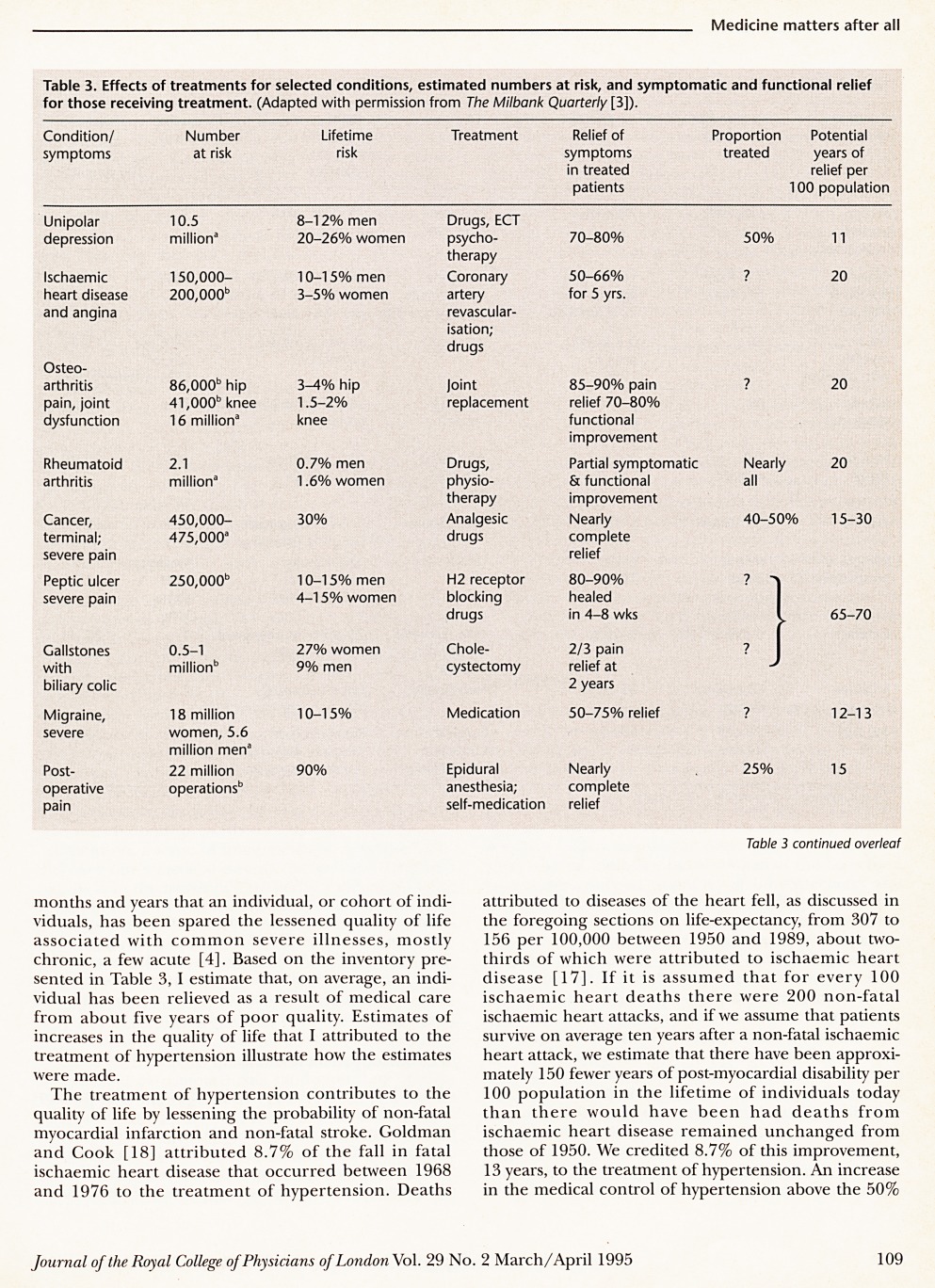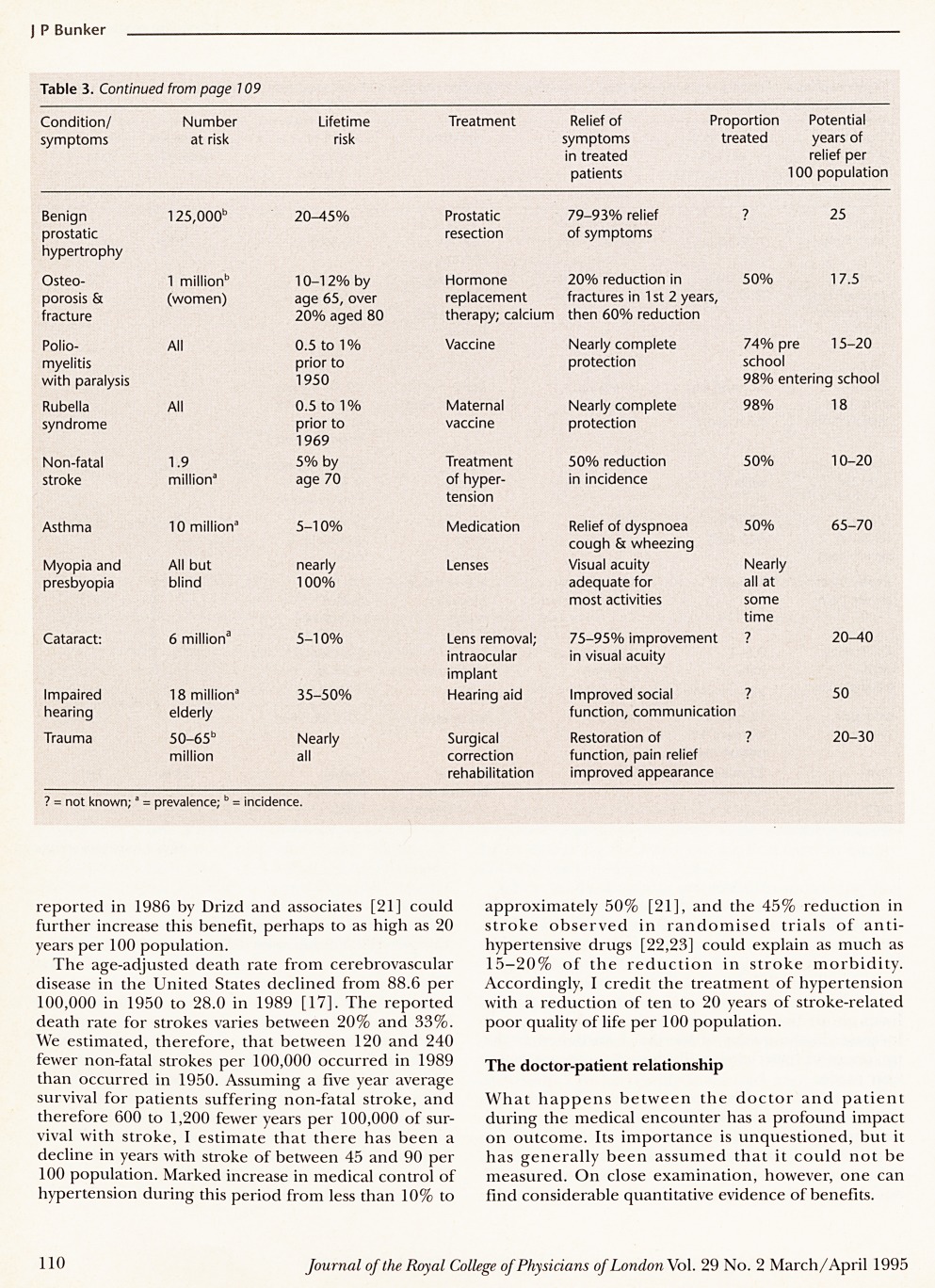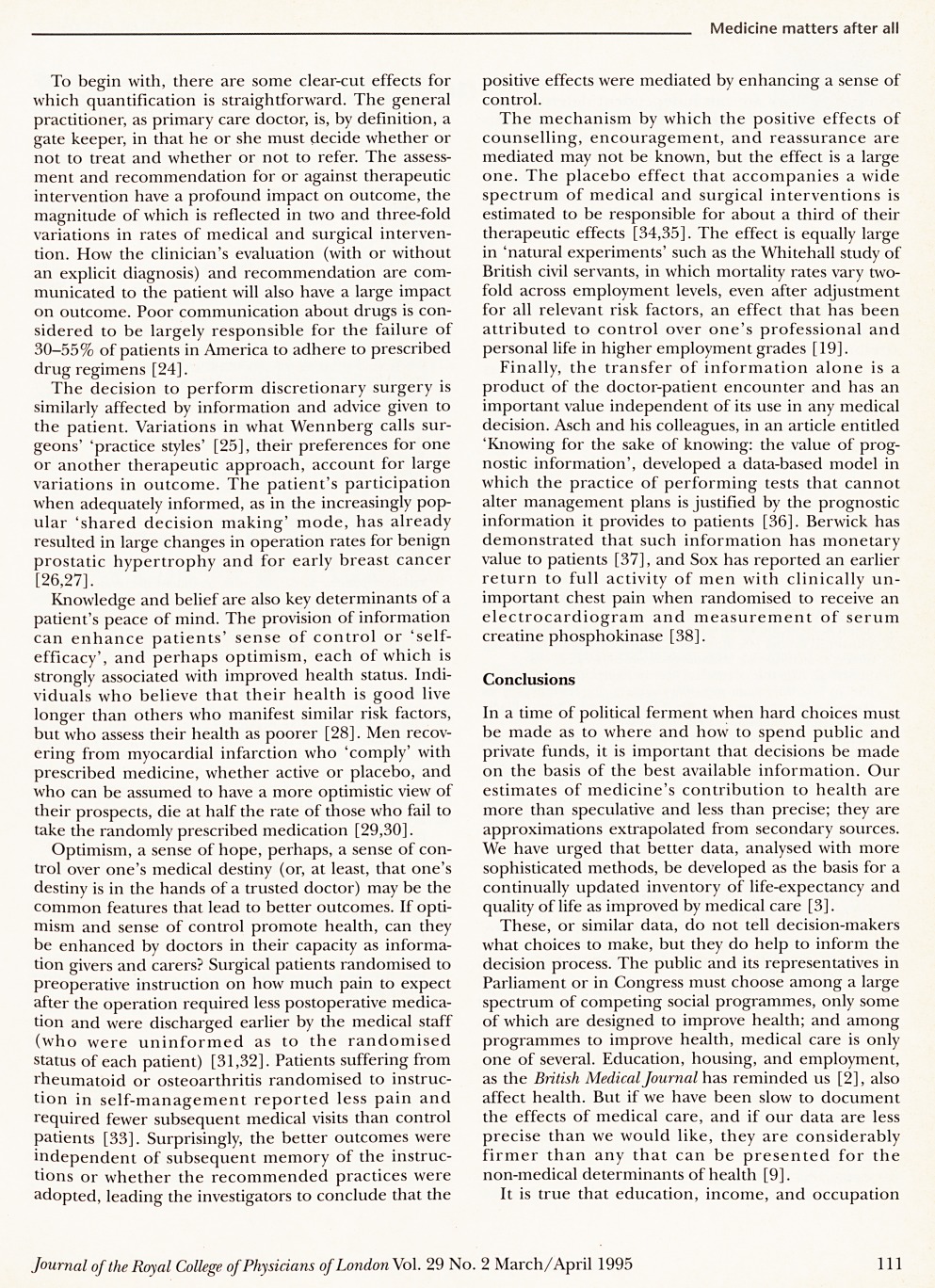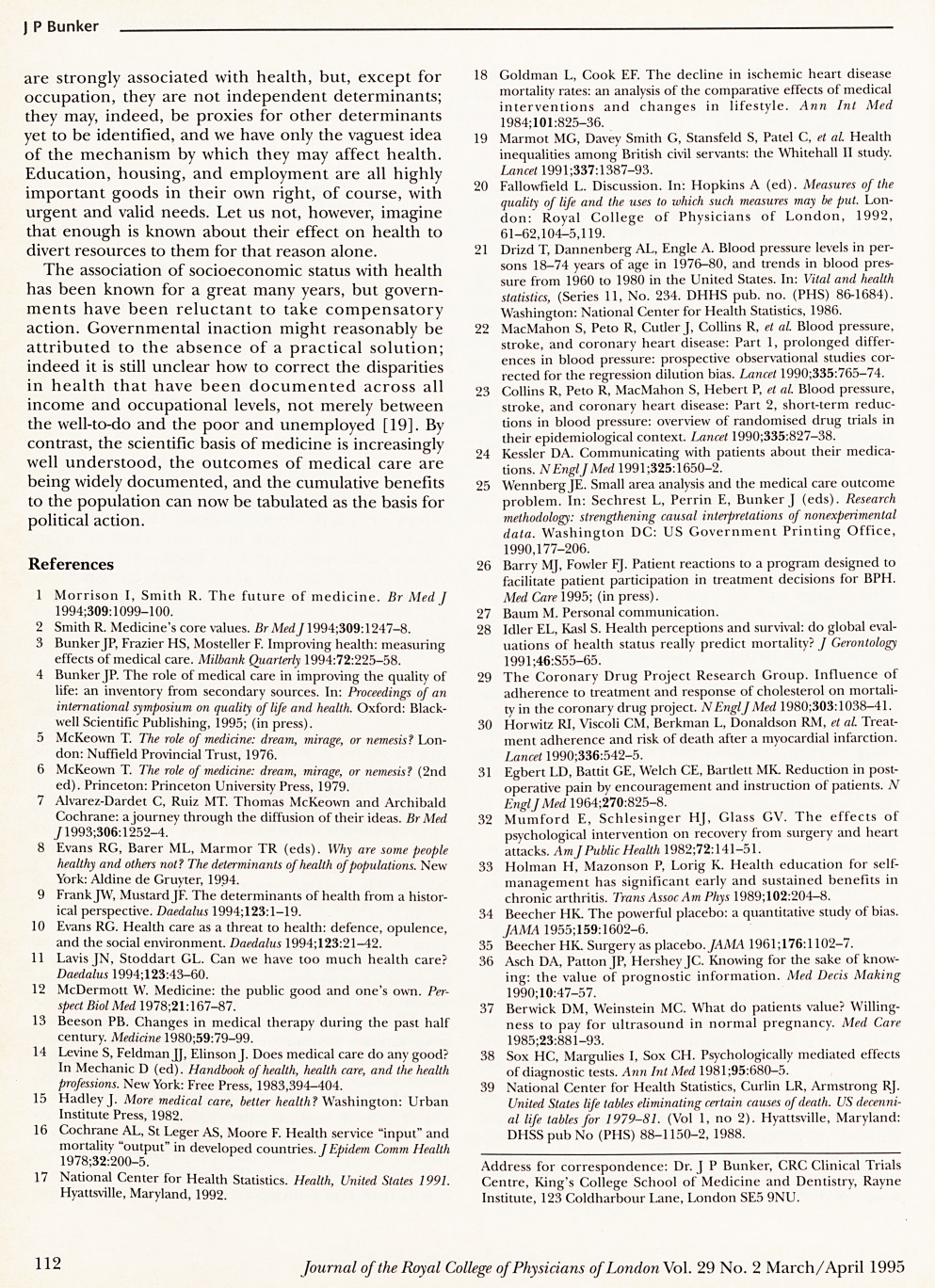Abstract
The extraordinary increase in life-expectancy that occurred early in this century has been attributed largely to non-medical factors. Life-expectancy has continued to rise, and medical care can now be shown to make substantial contributions. Three of the seven years' increase in life expectancy since 1950 can be attributed to medical care. Medical care is also estimated to provide, on average, five years of partial or complete relief from the poor quality of life associated with chronic disease. The association of social factors with health is well-known, but except for occupation, it is not known how they might act or whether they are proxies for some other yet to be identified factor.
Full text
PDF